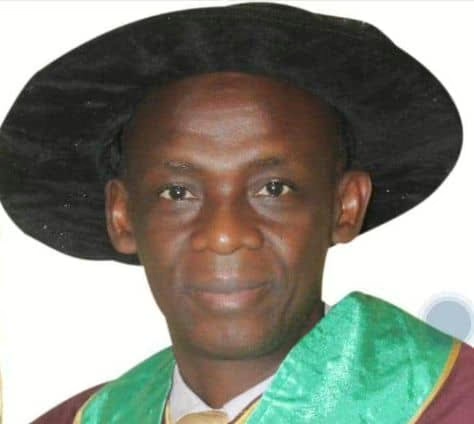‘How tax reform bills will benefit workers,’ Oyedele replies NLC
Taiwo Oyedele
Published By: Ayorinde Oluokun
By Ayorinde Oluokun/Abuja
Mr Taiwo Oyedele, the Chairman, Presidential Committee on Fiscal Policy and Tax Reforms has said contrary to recent assertion by Joe Ajaero, the President of Nigeria Labour Congress, NLC, the tax reform bills presently before the National Assembly are pro-workers. Oyedele said this while reacting to call by the NLC President that President Tinubu should withdraw the tax bills in his 2025 New Year message.
The NLC President had asked the President to withdraw the tax bill so that all key national stakeholders will be part of the process.
According to him, “NLC wants to join hands in co-creating a new national Tax law that would enjoy wider acceptance and would fulfill its purpose of propelling national development which we believe is the main objective of government.”
However, while welcoming the interest of the NLC on the Tax Reform Bills, Oyedele dismissed the claims that they will have negative impacts of the welfare of Nigerian workers.
“While we recognise that the tax bills can be further improved through robust debates and engagements, which can take place as part of the ongoing legislative process, the bills in their current form are the most pro-workers tax reform in Nigerian history,” Oyedele said.
The Chairman, Presidential Committee on Fiscal Policy and Tax Reforms in a statement published on his X handle listed how the tax reform bill will lead to improvement of the welfare of Nigerian workers
According to him, the implementation of the tax reform bill will lead to lower taxes that will enhance the disposable income of workers as as they provided for full exemption of low-income earners up to N1m p.a. (about N83k per month) representing about one-third of all workers in the private and public sectors from PAYE tax while PAYE tax for workers earning up to N20m p.a. (about N1.7m per month) will also be reduced.
- Tinubu’s tax reform bills and ensuing controversies
- Okupe brands Tax Reform Bills opponents as Nigeria’s foes
- “We weren’t raided by govt”: Edo NLC disagrees with national leadership
In the same vein, the reforms bill also made provision for exemption for members of the armed forces fighting insecurity in addition to other ranks from payment of PAYE tax.
Also, Oyedele said the tax reforms bills contain measures to reduce the cost of essential items with provisions for zero VAT on food, healthcare, and education representing about 60% of all consumptions, and VAT exemption on transportation, renewable energy, CNG, baby products, sanitary towels, and fuel products representing over 20% of all consumptions.
“These items constitute an average of 82% of household consumption and nearly 100% for low income earners to ameliorate the rising cost of living for workers,” he said.
The tax bills, Oyedele said also contained incentives to facilitate higher compensation for workers including tax break for wage awards and transport subsidy to low-income earners, removal of restrictions and bureaucratic approvals for wage awards and introduction of a cap on the taxable amount of benefit in kind granted to workers.
He added that the bills also contained tax waivers to promote affordable housing like VAT exemption on rent and acquisition of real property and exemption of stamp duties on rent below N10m.
Oyedele added that there are incentives to stimulate employment opportunities for workers in the bills including tax incentives for employers to hire more workers, friendly tax rules to attract remote work opportunities for Nigerians and tax exemption for 97% of SMEs, harmonisation and reduction of corporate tax rates for large businesses to stimulate growth and create more employment opportunities for workers.
“We believe that the NLC will not intentionally work against the interest of its members. We therefore look forward to the opportunity to discuss specific areas for improvement in the bills to better serve the interest of all Nigerians including workers,” Chairman of the Presidential Committee on Fiscal Policy and Tax Reforms concluded.











